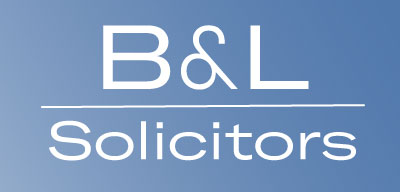Trusts and Tax
A Trust can be created during a person’s lifetime or alternatively it can be created on death. A Trust on death is usually incorporated into a person’s Will.
There are a number of reasons for Trusts and Estate Planning, for example:
- To provide for wealth and property to pass to future generations
- Reduction of a person’s or their family’s overall tax liability.
- To place assets outside an individual’s personal estate against claims by potential creditors. For example, you want to benefit your son, however you are concerned that he may be susceptible to future bankruptcy.
- To provide for a disabled Beneficiary or for a Beneficiary who is not competent with money.
- To provide for minor beneficiaries, i.e. grandchildren.
- To provide for a class of beneficiaries, but allowing their actual entitlement to be determined at a later point.
- To provide income and/or capital for one family member for a certain period after such period, to pass all the Trust Fund to another person absolutely.
There are different and varying Trusts, examples of which are as follows:
Interest in Possession Trust
A Beneficiary will receive Trust property or income for a fixed period. At the end of this period the trust property will pass to another named Beneficiary for life or a fixed period or absolutely. For example, a mother would be allowed to live in property for life and then the property would pass to her son on her death.
Accumulation and Maintenance Trust
These are an usually excellent mechanism for grandparents who wish to provide a fund for their grandchildren’s benefit. It is a type of Discretionary Trust purely for the benefit of persons under the age of 25 years. The Trustees have the discretion to distribute income and/or capital to Beneficiaries for educational, medical or beneficial purposes.
Discretionary Trusts
- This is for a general class of Beneficiaries.
- The entitlement of the Beneficiaries is at the discretion of the Trustees.
- A letter of wishes may be left by the Settlor (the person transferring property into the Trust) indicating their preferences for the distribution of funds. However, such a letter acts merely as a guidance and is not legally binding upon the Trustees.
A Trust needs to define the property, the initial Trustees, the Beneficiaries, the nature and extent of the Beneficiary’s entitlement and list the powers of the Trustees.
B&L Solicitors can offer advice with regard to Trusts and their tax implications, including:
- Advice on lifetime Trusts, merits and disadvantages as well as advice on formation and administration.
- Advice on Trusts established with a Will, their merits, disadvantages, formation and administration.
- Advice on tax in connection with the establishment and duration of Trusts with regard to Inheritance Tax, Capital Gains Tax and Income Tax.
Declaration of Trusts
If, for example, you have placed money into your son’s property, then it maybe advisable to protect your contribution. In the event that he were to be declared bankrupt, or married and then later divorced the money that you put in the property could be threatened. You can protect your contribution by preparing a Declaration of Trust. For more information contact our Property Department.
